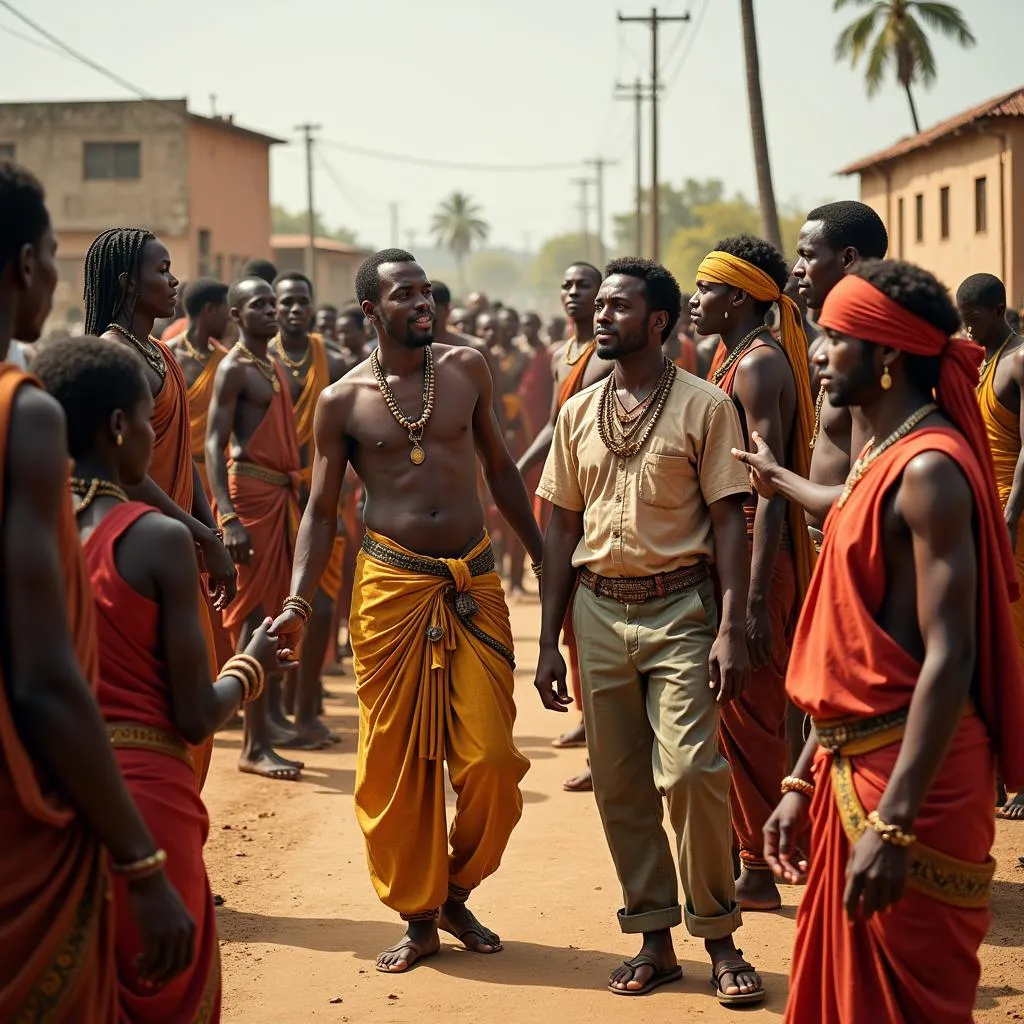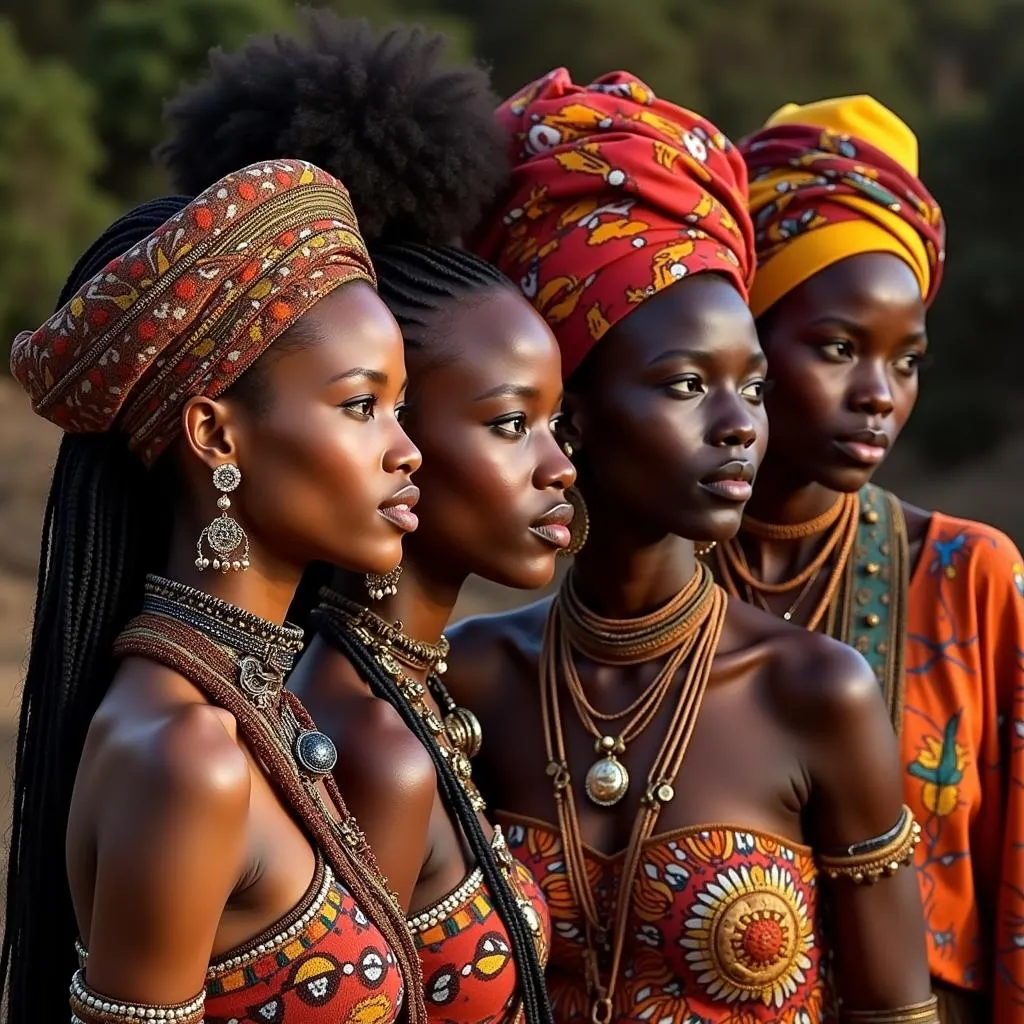African Killing Indian: Understanding the Complex History and Impact
The phrase “African Killing Indian” is a loaded term, often used to evoke images of violent conflict and historical injustice. However, it’s crucial to understand the multifaceted nature of this phrase and the complex history it represents. This article delves into the various interpretations, historical context, and ongoing impact of the phrase, aiming to provide a nuanced understanding of the events and issues it encompasses.
Exploring the Different Meanings of “African Killing Indian”
The phrase “African killing Indian” can have several meanings depending on the context. It can refer to:
- Historical conflicts: In some cases, it may refer to historical conflicts between African and Indian communities, either within a specific geographical region or during periods of colonial rule.
- Racial tensions: The phrase can also be used to describe racial tensions between people of African and Indian descent, highlighting the history of discrimination and prejudice faced by both communities.
- Cultural clashes: In some instances, “African killing Indian” could be used to depict cultural clashes between the two groups, emphasizing different values, beliefs, and perspectives.
It’s vital to remember that the phrase is often rooted in the historical realities of colonialism and the social dynamics it created. It’s also important to be mindful of the language used and to avoid perpetuating harmful stereotypes or generalizations.
Historical Context: Colonialism and Its Impact
The term “African killing Indian” often emerges from the legacy of colonialism, which created a complex web of interactions and power dynamics between African and Indian communities. During colonial rule, both groups were subjected to exploitation and oppression, leading to various forms of conflict and tension.
For example, in South Africa, Indian indentured laborers were brought to work on sugarcane plantations alongside Africans. This led to competition for resources and opportunities, fostering resentment and occasionally violence. Similar situations occurred in other parts of the British Empire, with both African and Indian communities vying for power and recognition in the face of colonial rule.
Examining the Impact of Conflict and Tensions
The historical conflicts and tensions between African and Indian communities have had a lasting impact on both groups. They continue to shape social, economic, and political realities in many countries.
Some examples of the ongoing impact include:
- Racial prejudice: In many parts of the world, African and Indian communities still face racial prejudice and discrimination.
- Social divisions: The historical conflicts can continue to exacerbate social divisions, creating barriers to intergroup understanding and cooperation.
- Political challenges: The legacy of colonial-era tensions can present challenges in building inclusive and equitable societies.
Moving Forward: Promoting Understanding and Reconciliation
Understanding the complex history behind the phrase “African killing Indian” is essential for moving forward. It requires a commitment to:
- Education and awareness: Promoting education and awareness about the shared histories and experiences of African and Indian communities is crucial.
- Dialogue and understanding: Encouraging dialogue and understanding between the two groups can help bridge cultural gaps and foster reconciliation.
- Building inclusive societies: Working towards creating inclusive societies that value diversity and promote equal opportunities for all is crucial.
A Look at a Different Perspective
Dr. Anika Sharma, a historian specializing in postcolonial studies, offers this insight:
“The term ‘African killing Indian’ is a simplification that ignores the complexities of historical interactions. It’s crucial to remember that both groups were victims of colonial exploitation and faced significant challenges. Moving forward, we must focus on creating a future where understanding and empathy prevail.”
Conclusion: Breaking Down Barriers and Fostering Unity
The phrase “African killing Indian” evokes a complex and often painful history. While acknowledging the historical conflicts and tensions, it’s essential to remember that these complexities are not inherently destined to define the present or the future. By understanding the past, engaging in dialogue, and promoting inclusivity, we can work towards building a world where African and Indian communities can coexist peacefully and harmoniously.
Frequently Asked Questions
Q: What are some examples of historical conflicts between African and Indian communities?
A: Historical conflicts between African and Indian communities are often linked to colonial rule. For instance, in South Africa, tensions arose between Indian indentured laborers and African communities competing for resources.
Q: How can we combat racial prejudice and discrimination against African and Indian communities?
A: Combating racial prejudice requires education, awareness, and active advocacy. It involves challenging stereotypes, promoting inclusive spaces, and supporting organizations that work towards equality.
Q: What are some initiatives that promote understanding and reconciliation between African and Indian communities?
A: Initiatives such as intergroup dialogue programs, cultural exchange events, and collaborative projects aimed at promoting understanding and cooperation are crucial.
Q: What are some steps towards building inclusive societies?
A: Building inclusive societies involves enacting policies that promote equal opportunity, addressing historical injustices, and fostering a sense of belonging for all members of society.
 Historical Conflict between African and Indian Communities
Historical Conflict between African and Indian Communities
This article aims to provide a nuanced understanding of the phrase “African killing Indian.” It’s crucial to acknowledge the historical context, the complexities of the relationships between African and Indian communities, and the ongoing impact of these interactions. We must continue to work towards a future where understanding, empathy, and unity prevail.


